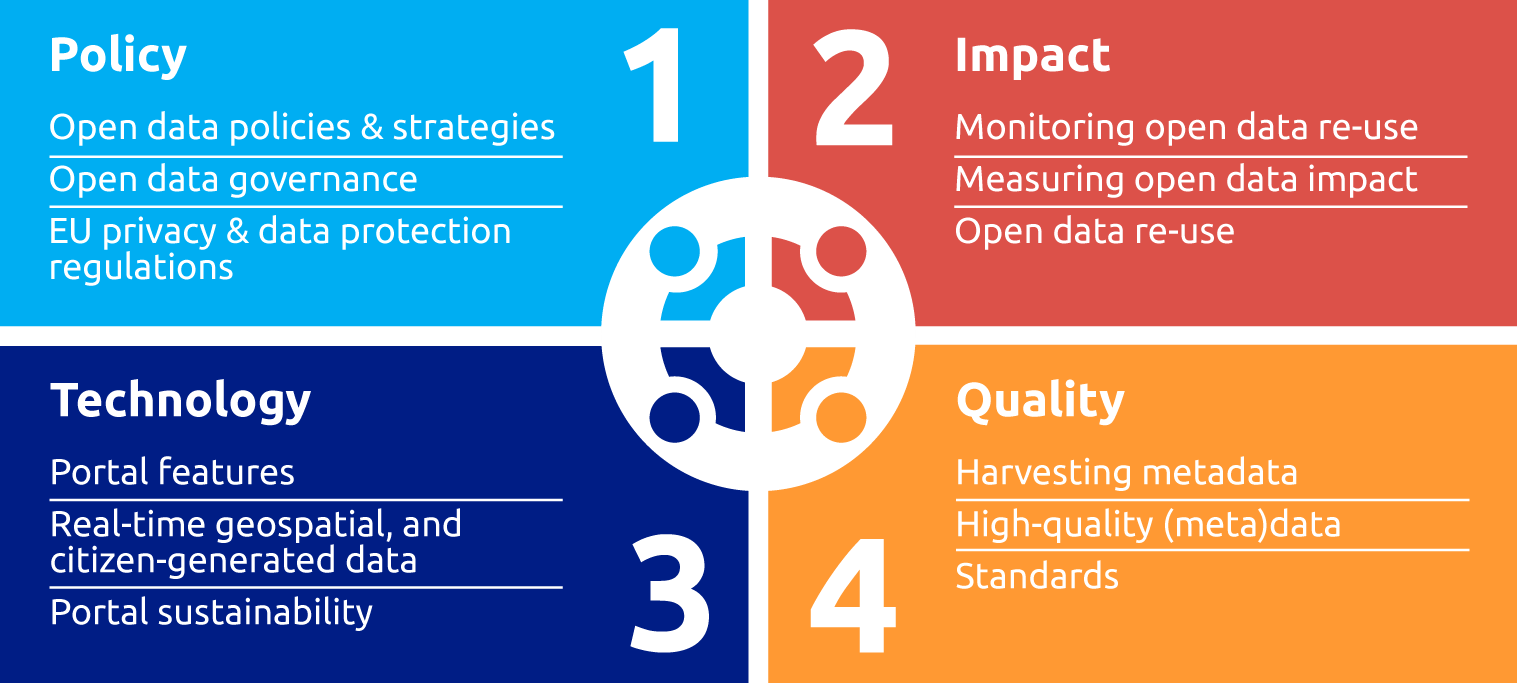The data.europa academy helps you become data literate
Interested in learning the basics about open data? Aiming to step up to the next level of high-quality data publication? Curious about geospatial data, open licences or metadata vocabularies? Or wondering how to become more data literate?
The data.europa academy can help you to become more knowledgeable about open data and to become more data literate. It provides you with knowledge and tools to publish high-quality open data that lives up to legal and technical standards, whether you are an expert or just getting started. Through the academy you can also discover how to create impact by re-using different types of open data.
In the academy you can learn about publishing and finding open data, interoperability standards, regulatory and technical requirements, or recommendations. Additionally, the data.europa academy covers topics related to open data re-use, such as best practices and measuring open data impact.
In the curriculum of the academy, you find a description of all available courses. They are offered in varying set-ups and cover a wide range of topics. Learning materials are presented in different formats, for example (online) training courses, workshops, reading materials, tools and videos.
To help you find the right course, the curriculum is structured along four themes: policy, impact, technology, and quality. These four themes cover a variety of topics considered to be essential for open data publication and re-use and are also used to benchmark country-level development in data.europa.eu’s annual Open Data Maturity assessment. The next edition of this assessment will be published in December.
To stay up to date with the latest insights and best practices, the academy curriculum is constantly updated with new courses and learning materials.

Why data literacy matters
As we all know, more and more data are available. Therefore, more than ever, it is important to be able to interpret data and draw the right insights from it. This capacity is called “data literacy”. The concept is defined by Gartner (2021) as “the ability to read, write and communicate data in context, including an understanding of data sources and constructs, analytical methods and techniques applied, and the ability to describe the use case, application and resulting value.”1 Data literacy is an important skill in public and private organisations. Data-driven decision-making is found to improve public services2 and business performance3. The importance of achieving a data-driven public sector is highlighted by the OECD (2019) as it is stated that “using data as a strategic asset is crucial for governments to boost public sector intelligence and, as a result, increase the capability of developing policies and services that are sustainable in the long-term and as inclusive and trusted as possible.”4
Public and private organisations consider data literacy as an important skill as data-driven decision-making can improve public services5 and business performance6. The OECD stated for example in 2019 that “using data as a strategic asset is crucial for governments to boost public sector intelligence and, as a result, increase the capability of developing policies and services that are sustainable in the long-term and as inclusive and trusted as possible.”7
“The application of data in government has almost limitless potential for providing more efficient, effective and trustworthy public services”, OECD (2019)8
Similarly, the private sector also benefits from improved data literacy. For example, research by Brynjolfsson, Hitt & Kim (2011) on 179 large publicly traded firms found that “firms that adopt data-driven decision-making have output and productivity that is 5-6% higher than would be expected given their other investments and information technology usage. Furthermore, the relationship between data-driven decisions and performance also appears in other performance measures such as asset utilization, return on equity and market value."9
Research by the Capgemini Research Institute (2020) amongst 1004 organisations shows that, despite great efforts, only 16% of organisations have the tools, technologies, people, processes, skills, and culture to successfully derive value from growing volumes of data.10
The data.europa academy aims to address this lack of data literacy. It will support you whether you are a data provider, civil servant, business owner or simply interested in data to become more data literate.
Explore the academy and give us your feedback!
